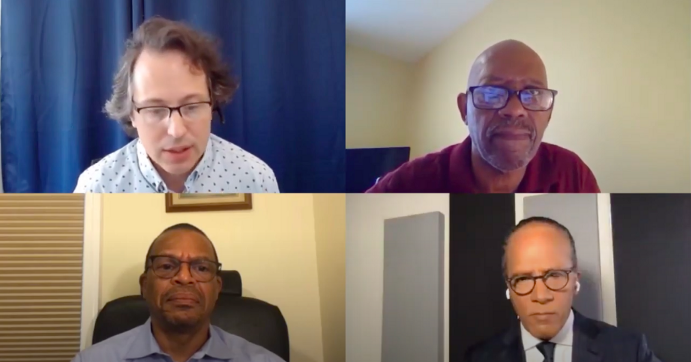FOR IMMEDIATE RELEASE | MEDIA CONTACT: MIKE WOOLFOLK, PRESS@NABJ.ORG
Before the COVID-19 pandemic, the criminal justice reform movement was making progress, advancing policies to reduce incarceration and removing legal and cultural barriers to give formerly incarcerated people a fair shot at a second chance. Now, the movement finds itself responding to a crisis on top of a crisis, advocating for emergency release policies to help stop the spread of the coronavirus inside jails and prisons across the country.
Inequities within our criminal justice system have intensified. Historically, communities of color and people living in poverty have been more likely to be incarcerated. Today, incarcerated people, confined to overcrowded jails, are contracting COVID-19 at alarming rates. And the virus shut down courts across the country, putting justice on hold for thousands of people.
The annual W. E. B. Du Bois Plenary, powered by CZI, brought together unlikely allies and leaders from across the spectrum to discuss what is happening to address the current threat, reforming the system for the future and empowering those the most at stake.
NBC Nightly News anchor Lester Holt and Latino USA anchor and executive producer Maria Hinojosa co-moderated this insightful discussion featuring 16 panelists, many of whom have been incarcerated and now work to right injustices that hold people, like themselves, back after they have paid their debt to society.
Holt moderated from a perspective of having embedded himself in a prison facility for three days to experience, first-hand, how inmates live. Panelist Vivian Nixon, who served 3 years in prison and 4 years on probation, shared thoughts on why so many women of color are incarcerated for crimes that others are not.
Panelist Ebony Underwood addressed how her father’s incarceration when she was young, affected her and her family. Prosecutor and former defense attorney marc Dupree addressed how where a case is prosecuted can determine the level of justice one receives. He shared experiences of defending people who could not be judged by a jury of their peers because there were no jurors who were peers.
Panelists also addressed discrimination against former inmates that prevents them from fully reintegrating into society — obtaining work, securing an apartment, being able to vote — because of their records.

